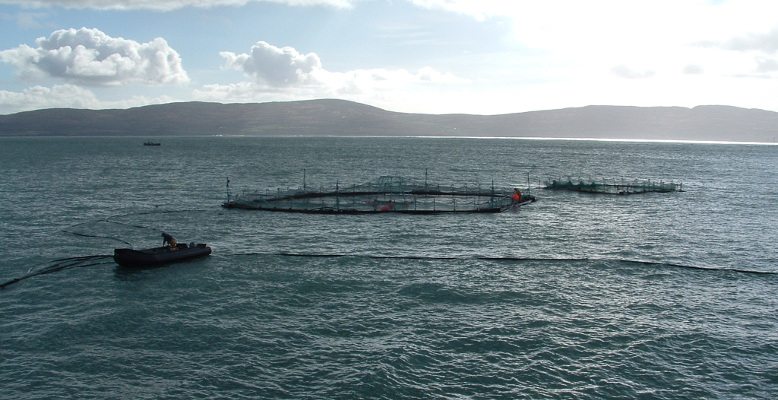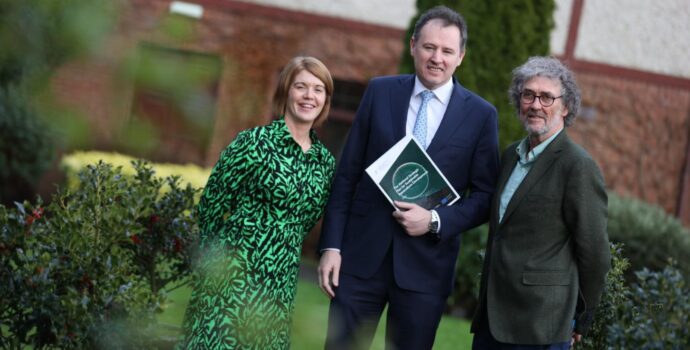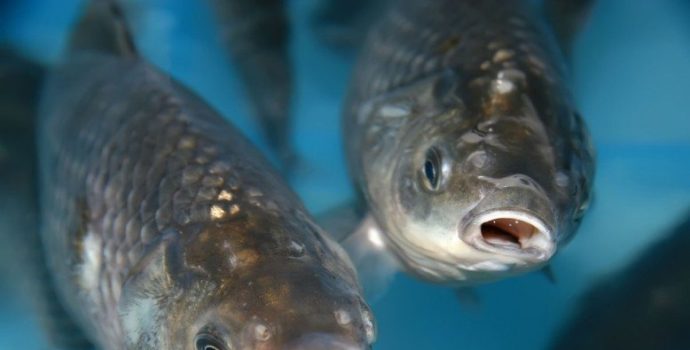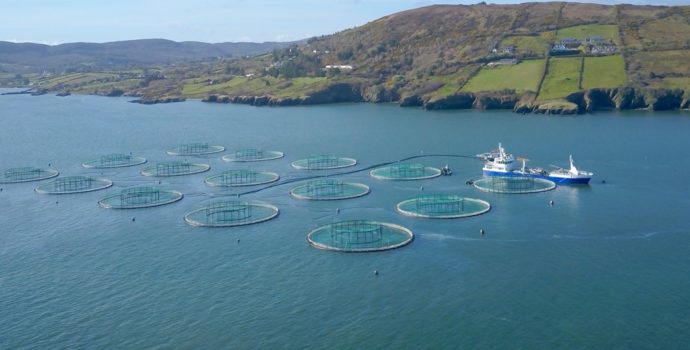COVID-19 Update on Aquaculture Inspections and Monitoring

Following the latest government guidelines for Essential Services during the Covid-19 crisis, announced on Saturday 29thMarch 2020, Aquaculture is included as an ‘Essential Service’ as ‘farmers, farm labourers, farm relief service workers, and others involved directly or indirectly in crop and animal production and related activities’.
Additional support services that facilitate the aquaculture sector are also included as ‘Essential Services’ in particular; ‘testing activities and analysis, scientific research and development activities, regulation, inspection and certification services, necessary to support essential services’.
The full list of’ Essential Services’, information on Covid-19 supports are available on the IFA Covid Hub – you will also find a template letter that can be used to provide employees as a form of identification as an essential worker during the Covid-19 crisis.
The Government has also detailed its ‘COVID-19 Supports for the Seafood Sector’ which is available here.
Stock management is one of the biggest challenges faced in this crisis by Irish aquaculture and we are seeking appropriate leniency in that regard to allow for temporary force majeure measures on aquaculture sites in the interest of fish/shellfish health and welfare.
The following is an update in regard to the temporary force majeure measures of inspection and monitoring programmes in relation to aquaculture sites:
Sea Lice inspections:
In light of the recent COVID-19 restrictions, the Marine Institute has suspended all sea lice inspections on finfish farms. This decision was taken with due regard to the health of both Marine Institute staff and those working on the fish farm sites. This will ensure that we are adhering to the latest advice from the HSE on social distancing and the strict visitor policies which are now in place in the majority of establishments.
To ensure the current high level of sea lice management is maintained on all farms, the Marine Institute are requesting that each site self-reports sea lice levels and submit this data to the Marine Institute.
These measures are being introduced on a temporary basis, subject to review as required, and as an exceptional measurement brought about due to current situation with Covid19. The regular inspections will resume once official advice form the HSE is received that it is safe to do so.
Having due regard to the health of their farm staff, it is expected that each operator fully complies with these measures.
DAFM Engineering inspections:
Marine Engineering Division (MED) carries out annual inspections at inland and marine finfish sites, as well as responding to reports of incidents/complaints on particular sites as they arise.
The regular inspection programme occurs generally from the summer into winter, so it is not expected, at present, that MED staff will be on site during the current Covid-19 situation.
MED staff will be in contact with operators in advance of any inspection to ensure that there are no issues with visitor policies which are now in place in the majority of establishments.
In the event of an incident at an aquaculture site that requires an on-site inspection by MED staff, these will be assessed on a case by case basis to determine if an on-site inspection is required, and if so, will be discussed in advance with the aquaculture operator. The usual conditions regarding reporting incidents to DAFM still apply.
In the meantime, any operator can contact MED engineers at any time by email, phone or VC if they wish to discuss any technical/operating issues with their sites.
Irish Shellfish monitoring programme
Shellfish Samples:
In view of the possible disruption to services in general due to the Covid-19 outbreak, shellfish samples submitted for biotoxin analysis should only be submitted by producers harvesting or intending to harvest in the immediate future.
Producers not harvesting shellfish should cease submitting biotoxin shellfish samples for the moment.
Phytoplankton samples:
Weekly phytoplankton samples should continue to be submitted. Particularly at this time, Phytoplankton samples provide critically important early warnings of potential harmful algae blooms, and will assist in Management cell decisions for production areas seeking to re-open.
Laboratories and Molluscan Shellfish Safety Committee:
Currently the Marine Institute’s biotoxin laboratory and phytoplankton laboratories are operating as normal. Latest updates of shellfish safety data continue to be updated on the Marine Institute HABS website or contact via [email protected].
The contracted microbiological laboratories for the Classification monitoring programme are also operating as normal.
All members of the MSSC will work closely in order to facilitate maximum flexibility to production areas seeking to re-open, and to allow rapid re-openings of production areas. Phytoplankton samples are an important element in such decision making.
In relation to re-opening of production areas – if producers could inform IFA Aquaculture as to when harvesting may recommence – this is facilitate effective communication through the MSSC and allow for swift decision making in the event of re-opening production areas.
Fish Health
In relation to Fish Health related services provided by the Marine Institute, please note the following:
- Mortality reports for both fish and shellfish should continue to be reported to the Fish Health Unit as normal through the usual channels.
- Applications for movements of fish and shellfish should continue to be submitted as normal by aquaculture producers by using the Fish Health Unit online application system.
- Routine health surveillance inspections conducted by the Marine Institute have been suspended until further notice.
- Provision of export certification by the Fish Health Unit continues as normal including pre-certification inspections.
- The Fish Health Unit Laboratories remain open and continue to process samples. However, in the current situation where there may at times be reduced capacity, it is critical that laboratories are consulted prior to submission of samples to ensure efficient laboratory operations.
- It should be noted working arrangements due to COVID-19 may occasionally result in delayed in response times by the Fish Health Unit. Therefore, applications for movements of aquatic animals should be made as early as possible in advance of the movement date.
- COVID-19 is an evolving situation and any changes to the FHU operations and procedures will updated on the Fish Health Unit website as they occur https://www.fishhealth.ie/fhu/. Requests for further information are directed to [email protected]
| IFA Aquaculture Contact | |
| For issues relating to: |
|
| IFA Contact: | Teresa Morrissey |
| Phone: | 01 4260338 |
| Email: | [email protected] |



